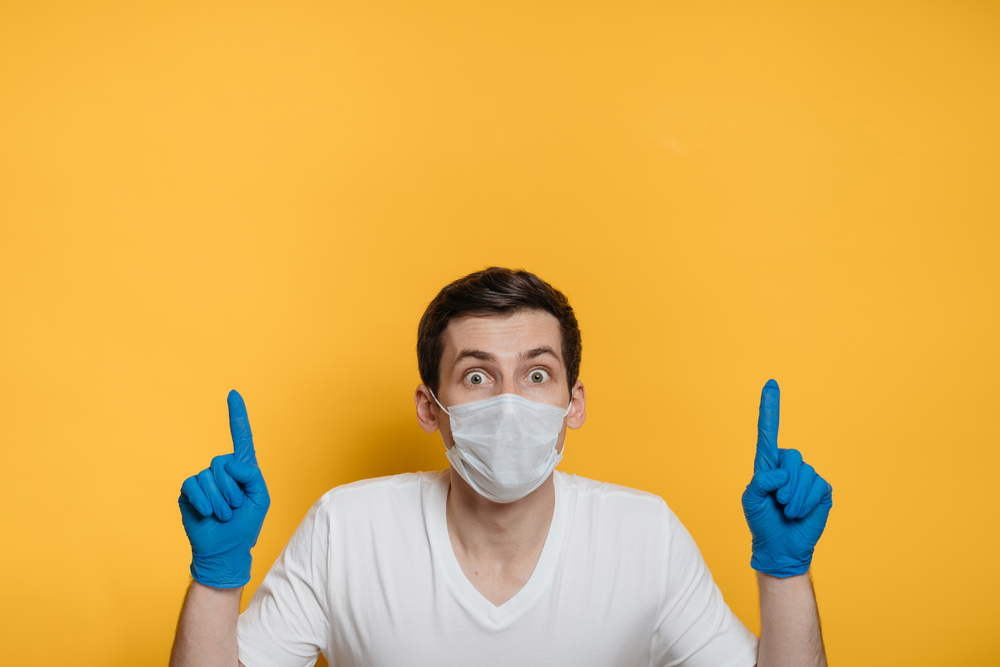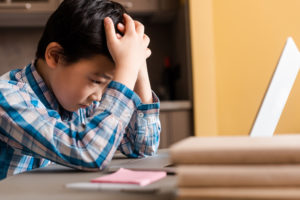
Steven Horwitz and Frank Stephenson
Amid the COVID pandemic, we often hear calls to “follow the science.” Such exhortations are intended to get people to avoid large crowds, wash their hands, wear face coverings, or adopt other practices that are believed to reduce corona virus transmission.
People who want to avoid contracting COVID should certainly take certain precautions that can reduce its spread. People who want to have stores, schools, houses of worship, and other parts of society to return to normal operations as soon as possible should also support measures that minimize transmission.
Of course, following the science can be more challenging than that pithy statement lets on. What constitutes “the science” has changed quickly as we have learned more about how the virus spreads, what countermeasures are most effective, and which treatments are most efficacious. This constant process of new discoveries is not unique to COVID. This is how science works when faced with the unknown. The constant change we’ve seen in the state of medical and scientific knowledge is a feature not a bug. It reflects the efforts of millions at trying to figure out how to treat and cure the virus. And it’s amplified by the ability of researchers to share their results quickly and publicly through social media. Of course the benefits of that speed do come with a risk of misinterpretation and falsification of data, as we have seen repeatedly. But those risks are worth the speed at which we have learned so much about how to respond to the contagion and treat those who it sickens, and it has also forced us to think critically about what information to rely on and what to dismiss.
Sorting through all of that information in order to “follow the science” can also be challenging when political leaders and government officials send conflicting messages, promote junk science, or dismiss legitimate lines of research. Early in the pandemic, public health officials discounted the efficacy of face coverings as a means of combating spread only to later flip flop and advocate mask mandates. The media are replete with photos of politicians going maskless after imposing mask requirements. In the same vein, many a politician has been seen in a gym or hair salon after ordering such establishments closed to the public. And the President has certainly not helped matters by providing a platform for a variety of questionable claims and “experts.”
One of the lessons of the COVID experience is that determining what “the science” is that we are supposed to follow is never as clear as the simple exhortation to “follow the science” might suggest, especially with a new phenomenon like this virus. The science is always mediated through imperfect human social institutions, whether those associated with science, or politics, or economics.
And that raises a larger problem with “follow the science”—it can forget to take social science into account sufficiently. In particular, science may suggest that shuttering “non-essential” businesses and conducting school, work, and other activities remotely where possible are the best ways of reducing the spread of the virus, but those recommendations can easily ignore the tradeoffs involved in choosing to shut down wide swaths of society.
The most obvious tradeoff is loss of income for unemployed workers and operators of closed enterprises. Lost income can lead to harms such as inability to pay rent or make mortgage payments and difficulty providing for families. Too many have dismissed these as merely material concerns, but they have ramifications that go beyond the narrowly financial.
Lockdowns have a variety of other social consequences that cannot be ignored or dismissed. Anecdotes about the “quarantine 15” suggest a society that already had many overweight people may have gotten even heavier and less healthy. Many routine doctor visits were postponed or canceled, leading some ailments to go undetected or untreated, including cancer screening and chemotherapy. Likewise, elective surgeries were pushed back or canceled, leading, for example, to prolonged pain and suffering for people scheduled for joint replacements.
Mental health issues are another tradeoff. Isolation, be it voluntary or government enforced, can deprive people of needed interaction with others. Just last week, Dallas Cowboys quarterback Dak Prescott spoke about how not being able to work out with, and just be around, his teammates led to bouts of anxiety and depression. In addition, out of work people may engage in many unhealthy behaviors. There have been numerous news reports that COVID quarantines brought increases in suicides, drug abuse, and alcohol consumption. In short, a significant tradeoff associated with following the science in the case of lockdowns is, in the words of economists Anne Case and Angus Deaton, an increase in “deaths of despair.”

Kids are not immune from the tradeoffs associated with following the science. Remote learning may work well for some children, but abruptly switching from face-to-face instruction to virtual schooling probably doesn’t work well for many. For example, some kids have poor home situations or no home internet connectivity. The same children who are mostly likely to have difficulty switching to internet-based instruction are probably the ones who most need the social mobility associated with educational attainment. More generally, isolation deprives children of much needed interactions with other kids that are a vital part of growing up. It’s not surprising therefore that the American Academy of Pediatricians came out strongly in favor of having children physically present in school. Kids are also harmed by financial and mental pressures experienced by their parents. And many of these harms may not appear until much later, making them easy to overlook in an overly zealous attempt to “follow the science.”
The debate over mask wearing is relevant here too. Social science can also help us to understand how mask mandates can backfire by making people feel too safe, what economists call “moral hazard,” or how they can exacerbate other social problems by increasing the power of law enforcement, especially over the poor and people of color. Social science can also illustrate the ways that masks, even when not mandated, make social communication and coordination more difficult. One can still think mask wearing is a good idea while also using social science to understand its costs and the problems with making it mandatory.
When we tally the effects of “following the science,” we have to take account of Bastiat’s famous description of the economic way of thinking as “seeing the unseen.” For example, we cannot just calculate the deaths that lockdowns may have avoided – we also have to consider the deaths and other harms they may have caused. As is also often the case with looking at the world through social scientific eyes, some of that harm and those deaths may not appear until the long run, e.g., the consequences of delayed screening for various ailments or the effects on the education of children. Thinking in terms of trade-offs, the unseen, and the long run are hallmarks of good social science, and engaging in true double-entry moral and social bookkeeping requires that we follow that social science too.
It is indisputable that scientific knowledge is important, and that willfully ignoring and misrepresenting scientific knowledge has caused needless illness and death. But social science—especially our discipline, economics—is also important in identifying tradeoffs associated with “following the science.” In a pandemic, heeding social science is necessary too.
Frank Stephenson is the Henry Gund Professor of Economics and Department Chair of Accounting, Economics, and Finance at Berry College.
Steven Horwitz is Distinguished Professor of Free Enterprise in the Department of Economics at Ball State University in Muncie, IN. He is also an Affiliated Senior Scholar at the Mercatus Center in Arlington, VA, and a Senior Fellow at the Fraser Institute of Canada.

READER COMMENTS
mm
Sep 19 2020 at 1:12pm
Can’t follow the social science when so much of its work is bogus:(https://www.firstthings.com/article/2016/05/scientific-regress)
(https://www.washingtonexaminer.com/weekly-standard/the-new-york-times-mourns-the-death-of-bad-social-science)
(https://www.nature.com/articles/s41562-018-0399-z.epdf?sharing_token=yXWQapo2wq9Ez6-TZ35nE9RgN0jAjWel9jnR3ZoTv0ODPoD_DniKOJV85YbvYREV4WYg3rUMkw4Dn3xQpiS36X4SsNiPbgxI-gOKDTUGRw9pvXEkgdcnfNT1KhfkA0oSWTt6haBsbJ5hB6492HGGoulHrxhnQFyU0i-E40pzc6pygudlsYI-Y_7UUHz18AV1-heNhvRCXEDJWxn9ftJZ2w%3D%3D&tracking_referrer=www.vox.com)
robc
Sep 19 2020 at 10:55pm
As your links point out, the problem is with science as well as social science.
Mm
Sep 23 2020 at 8:09am
Yes and more distressing is the replication failures in fields like oncology.
JdL
Sep 21 2020 at 7:31am
I lost count of the number of times the author repeated that phrase “the science”. There is no such thing as “the science”. Science is a process, one which first and foremost posits that every theory should be under constant and rigorous assault. Only those theories which withstand such assault get grudging and provisional acceptance, but at no time should the process of trying to disprove any theory cease.
I appreciate, though, that the author is using the phrase at least partly to poke at it, and I very much agree with the thrust of the column.
suddyan
Sep 21 2020 at 10:31am
[And the President has certainly not helped matters by providing a platform for a variety of questionable claims and “experts.”]
Let me be frank: Really?
Who, pray tell, were the arbiters who decided what these exact “questionable claims and experts” were, and who, pray tell, mandated that such claims should not be exposed to public debate?
I regard the above quoted assertion by the authors as questionable, and I do not regard the authors as “experts” about what other claims (questionable or not) I may wish to listen to and judge for myself.
John Fembup
Sep 21 2020 at 11:36pm
👍
Comments are closed.